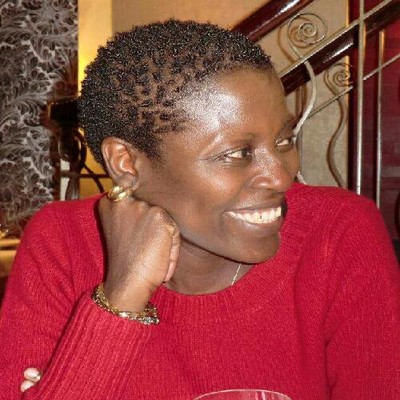
By Carolyn Mwasha.
Prof Julie Makani’s life vividly illustrates the phrase, “Be the change you want to see”. Prof Julie was born in the very grounds most of us tread through, in our native land of Tanzania, in the year 1970 in Dar es Salaam.
Makani made it a deep-rooted passion for her to seek a solution in health concerning Sickle Cell Disease.
It is said, “when it hits home, it hits you differently”. Julie had witnessed three of her cousins died from the disease, one with the most vicious kind of the disease died at fifteen years of age, and the other two held on to maturity, created lives for themselves, and attended medical school but died untimely.
Her journey began at the University of Dar es Salaam, where she got her undergraduate and postgraduate degrees. Makani ventured to England to earn her Ph.D. specialising in sickle cell disease at the Open University.
During her time there, she showed exceptional abilities in research and ultimately landed a fellowship at Oxford in Tropical Medicine.
Prof Makani has been honoured with several awards, she received the Fellowship of the Royal College of Physicians (FRCP), a postgraduate qualification that is recognized by the medical professional regulatory body in the UK, the General Medical Council (GMC).
In 2009, Prof Julie held the Archbishop Desmond Tutu Leadership Fellowship at the African Leadership Institute and was a Fellow of the Tanzania Academy of Sciences.
In 2011, Prof Makani received the Royal Society Pfizer Award for her work in anaemia in Sickle Cell Disease as a model of translating genetic research into health benefits.
She was also named on the 2018 100 Most Influential Africans list compiled by New African Magazine and the BBC 2019 Top 100 Women list of inspiring and influential women worldwide.
Her clinical area of interest is Haematology, focusing on sickle cell disease. She has written and published widely in the area and established and been resourceful as a member of several networks and projects at regional, national, and global levels.
Julie is an Associate Professor in the Department of Hematology and Blood Transfusion at the Muhimbili University of Health and Allied Sciences in Tanzania. The Sickle Cell Disease program she runs at Muhimbili has been named one of the world’s largest cohorts, with surveillance of over 5000 sickle cell disease patients.
It has become a line of action for comprehensive research incorporated into healthcare, advocacy and education. The program moves with the scientific themes of clinical and biomedical research, including genomics and public health.
Pro Makani is dressed in many hats and sits at many tables on the journey to quench the fire of passion that had been lit by the death of her cousins from the despicable disease. She wears them with grace, responsibility and great discipline.
Ben Fishel said it best “ Our biggest battles are fought behind closed doors”. It is with certainty that there are challenges where she had failed and walked on roads that were ultimately dead ends. She also battles breast cancer. Ultimately she found ways to rise to the occasion. This is evident in the lives she has touched and her marked peaks.
To Makani, the journey has become more than what she had anticipated, and through her perseverance, she has met many families such as hers whose members were crippled by the disease.
There is still a lot to be done, yet she, unlike the majority, is walking her journey to realizing the change she wants to see in her community and the world.
Spoken well by Churchill, “We are still the masters of our fate”. The change you want to see, the things you want to be different, the circumstances you want to wish away, can only be willed to change by you.
* Ms Carolyn Mwasha, is a 5th-year student, Doctor of Dental Surgery (DDS), Muhimbili University of Health and Allied Sciences (MUHAS). Email: carolynmwashas@gmail.com
